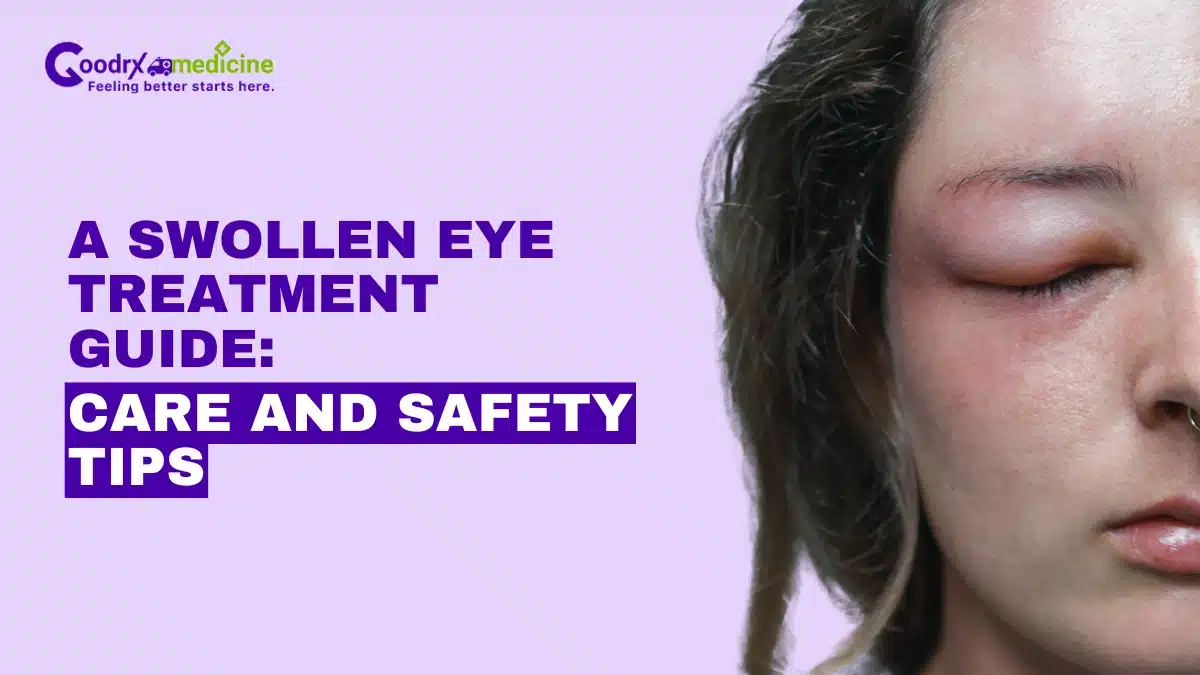Many people experience swollen eyes at some point, which can be uncomfortable regardless of age. Most cases come from external causes such as allergies, Conjunctivitis (pink eye), styes (small bumps on the eyelid), insect bites, or minor injuries. These problems often lead to swelling, redness, pain, or discharge.
Less common internal conditions like kidney disease, heart failure, or liver problems may also cause swelling around the eyes. While most external triggers, such as pollen, dust, or pet dander, are common and manageable, some underlying health problems or severe symptoms may need prompt medical attention.
In this article, we’ll discuss the causes, diagnoses, and the best treatment options for swollen eyes, so you’ll know when home care is enough and when to see a doctor for safe relief.
Ways to treat swollen eyes at home
Swollen eye treatment depends on the cause. Mild swelling from allergies or irritation may improve with over-the-counter (OTC) medications, natural and home remedies, while infections and severe injuries often need medical care.
OTC medications
OTC medicines provide quick relief from mild symptoms caused by allergies and injuries. You can pair them with a cold compress and hygiene for quicker results. Standard OTC options include:
- Antihistamines (allergies): Oral antihistamines, such as Cetirizine or Loratadine, as well as antihistamine eye drops, work to reduce swelling, redness, and itching.
- Lubricating eye drops: Artificial tears soothe dryness, flush out irritants, and relieve puffiness from minor irritation or crying.
- Pain relievers for injury and trauma: OTC NSAIDs such as Ibuprofen help ease pain and inflammation from a mild injury or itchy eyes.
Save up to 90% on your medicine bills
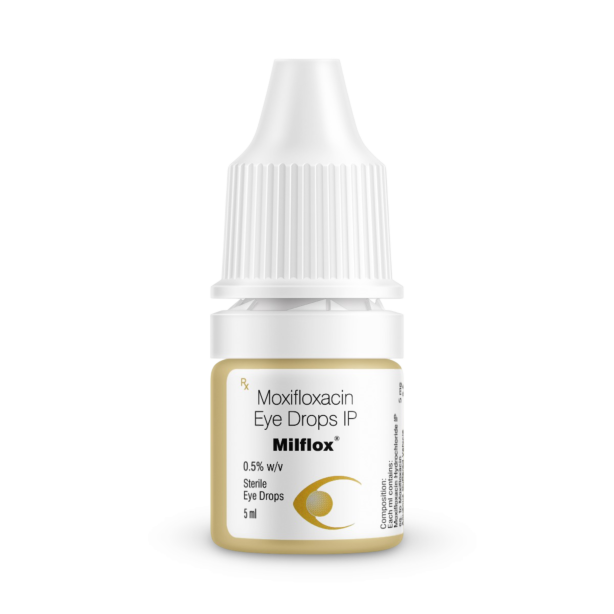
Milflox 0.5% 5 ml
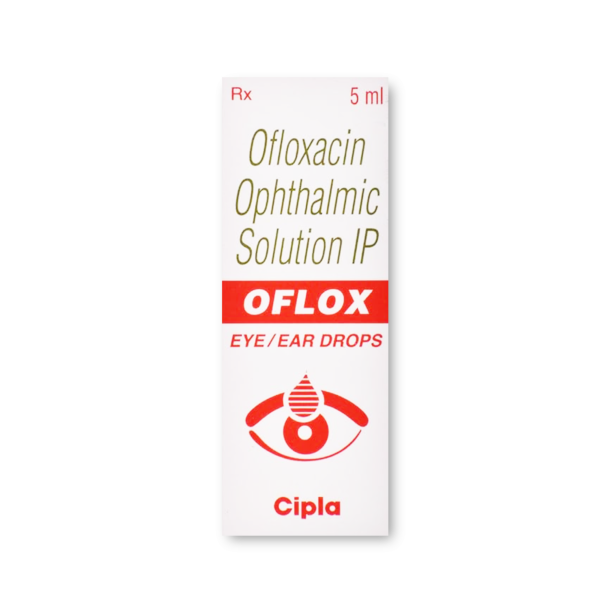
Oflox 5 ml
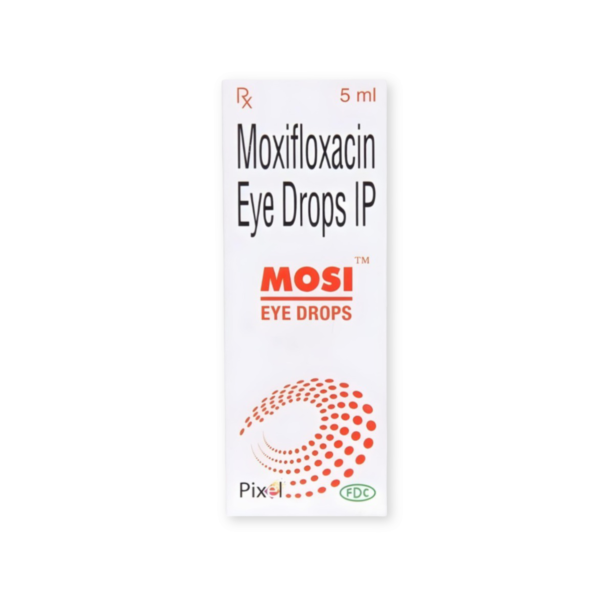
Mosi Eye Drop
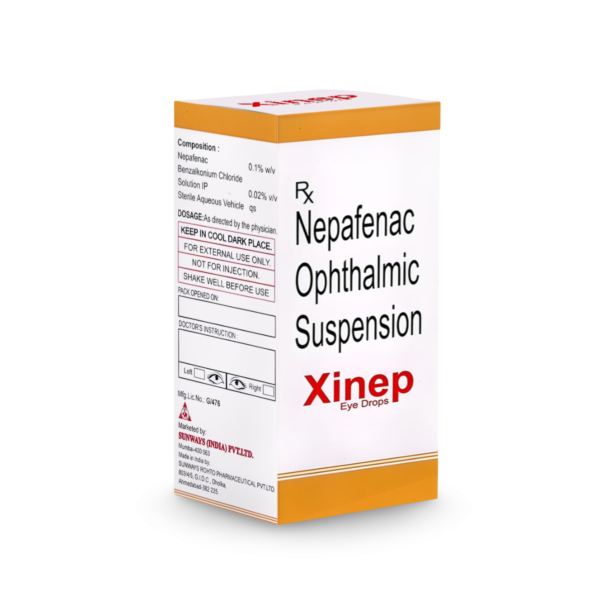
Xinep 5 ml
At-home swollen eye treatment
When swelling occurs due to poor sleep, high salt consumption, or fluid retention, you need to make lifestyle adjustments and follow some home remedy treatments and have supportive care:
- Cold compress for puffy eyes: Apply a clean, damp cloth over your closed eyes for about 10–15 minutes. The freezing temperature constricts blood vessels, calming inflammation and refreshing the under-eye area.
- Proper REM sleep: Elevate your head with an extra pillow and aim for 7–8 hours of quality rest. This helps prevent fluid from pooling under the eyes, reducing morning puffiness.
- Lower salt intake: Reduce sodium in your diet to prevent fluid buildup that can cause swelling around the eyes.
- Stay hydrated: Drink plenty of water to maintain overall fluid balance and support your body’s natural detox process.
- Reduce alcohol and caffeine intake: Limiting alcohol and caffeine is equally essential, as these can lead to dehydration and worsening under-eye puffiness.
- Gentle massage: Using clean fingertips or a chilled jade roller, lightly tap or roll outward over closed eyes for a few minutes. It stimulates lymphatic drainage, which helps move trapped fluids away from the under-eye area, easing puffiness, improving circulation, and giving the skin a fresher, tighter appearance.
Natural swollen eye treatment
Natural treatments offer gentle ways to manage the swollen eye condition. Some of the commonly known remedies include:
- Cucumber or potato slices: Place chilled cucumber or potato slices over your closed eyes for at least 15–20 minutes. It provides a cooling effect, soothes irritation, and reduces fluid retention in the under-eye tissue.
- Aloe vera gel or rose water: Apply pure aloe vera gel or chilled rose water gently under the eyes. Both of these have anti-inflammatory and hydrating properties that can cool the skin and reduce swelling under the eyes.
- Chilled tea bags: Steep black, green, or chamomile tea bags in hot water, chill them, and place them over closed eyes for 10–15 minutes. Caffeine in black and green tea reduces swelling by constricting blood vessels, while chamomile soothes and calms inflammation.
These natural treatments complement medical advice and OTC options. Still, you must always discuss persistent or worsening eye swelling with an eye care professional.
Prescribed medication for swollen eyes
When home remedies and OTC treatments fail to control eye swelling, visiting a doctor for stronger, targeted care is essential. Persistent or worsening swelling can indicate infections, allergic reactions, or other underlying issues that cannot be treated with simple measures.
An eye specialist will examine the eye, identify the cause, and recommend the most effective prescription medication to prevent complications and protect vision.
Conditions such as bacterial infections, severe allergies, or Pink Eye (Conjunctivitis) often require prescription treatment.
Some standard prescriptions for swollen eyes include:
- Steroid eye drops: Steroid eye drops, like Loteprednol and Prednisolone, help reduce severe allergic inflammation by calming the immune response and decreasing inflammation of the eye.
- Antibiotic eye drops or ointments: Oral or intravenous medications like Moxifloxacin and Erythromycin clear bacterial conjunctivitis and other eye infections, which might be causing swelling. These prevent the disease from spreading and promote faster healing.
- Antiviral eye drops: Antiviral eye drops like Ganciclovir are used for viral eye infections like Herpes Simplex Keratitis, as they help to limit damage to the cornea.
Prompt professional evaluation ensures accurate diagnosis, appropriate use of prescription medication, and protection against long-term eye damage.
Conclusion
Swollen eyes can result from a variety of causes, ranging from minor irritations and allergies to more serious underlying health conditions. Most mild cases can be managed through simple lifestyle changes, such as staying hydrated, reducing salt intake, getting quality sleep, and applying cold compresses.
Natural remedies, such as cucumber or potato slices, aloe vera gel, rose water, and chilled tea bags, can provide gentle relief and help reduce puffiness. Additionally, over-the-counter medications, including antihistamines, lubricating eye drops, and pain relievers, can further ease symptoms caused by allergies or minor injuries.
However, persistent, severe, or worsening swelling may require professional evaluation. Prescription treatments, such as steroid, antibiotic, or antiviral eye drops, are necessary for infections, severe allergies, or other underlying conditions. Combining proper home care, OTC options, and professional guidance ensures safe and effective management of swollen eyes while protecting overall eye health.

Frequently Asked Questions
Can using cold compresses too often harm the skin around my eyes?
Yes, overusing cold compresses can harm the delicate under-eye skin, as you may experience mild frostbite if applied directly. Wrap ice in a clean cloth and apply for 10–15 minutes. Avoid repeated use within short intervals.
Are there risks with using steroid eye drops for swelling?
Yes, steroid eye drops are powerful and can be dangerous if misused. They can increase eye pressure, contribute to Cataract formation, or worsen infections. Because of these side effects, you should only use them when prescribed.
Do natural remedies like cucumber slices or tea bags have any side effects?
Yes, although it is generally safe, natural remedies can cause problems if not used carefully, such as introducing bacteria to the eyes if cucumber slices or tea bags are unclean or improperly prepared.
Can makeup or skincare products cause swollen eyes?
Yes, expired or low-quality makeup and skincare products may harm the sensitive eye tissues, leading to swelling or redness. You may also experience allergic reactions to certain ingredients present in the products. Always check expiry dates, test new products, and remove makeup before sleeping.
How is long-term management of swollen eyes different for children and adults?
Children need gentler care with strict hygiene, supervised allergy treatment, and prevention of eye rubbing to avoid infection or blocked tear ducts. Adults usually manage allergies, poor sleep, or blepharitis through lifestyle changes, eye hygiene, and prescribed medications. Both require medical evaluation for persistent or recurring swelling.
How can screen time affect eye swelling?
Too much screen time reduces blinking, strains the eyes, and often causes dryness and irritation, leading to mild swelling. Regular breaks, adjusting screen brightness, and using lubricating eye drops can prevent discomfort and maintain eye health.
When referencing outside resources, GoodrxMedicine always provides full citations. To learn more about the measures we use to maintain the quality of our content, please review our Content Information Policy.



